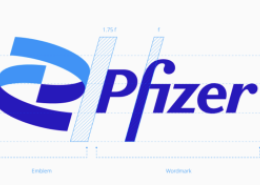Pfizer Completes Pneumococcal Pneumonia Case Accrual For CAPiTA, Adult Vaccine Clinical Trial Of Prevenar 13*
Top-line Results Expected in Early 2014
NEW YORK, N.Y., August 29 – Pfizer Inc. (NYSE:PFE) announced today the completion of pneumonia case accrual in the Community-Acquired Pneumonia Immunization Trial in Adults (CAPiTA) 65 years of age and older. CAPiTA, the largest trial of its kind, was designed to evaluate whether Prevenar 13* (Pneumococcal polysaccharide conjugate vaccine [13-valent, adsorbed]) is effective in preventing community-acquired pneumonia (CAP) caused by the 13 pneumococcal serotypes included in the vaccine.1 It is an event-driven clinical study, meaning that a pre-specified number of community-acquired, vaccine-type pneumococcal pneumonia cases have to occur among study participants before the results can be determined.
As specified in the study protocol, all remaining suspected cases currently in review will be fully processed to allow the database to be locked. This case processing will take several months to complete and will be performed by Julius Clinical, a spin-off of the Julius Center for Health Sciences and Primary Care, a division of the University Medical Center Utrecht in the Netherlands, where the study is being conducted. Pfizer will be blinded to the data during this period. Once unblinding occurs, Pfizer, Julius Clinical, and the primary investigator will review the data and disclose the top-line results, which is expected to occur in early 2014.
About CAPiTA
The approval of Prevnar 13 for use in adult 50 years and older, under the United States Food and Drug Administration’s accelerated approval program, was based on the surrogate endpoint of immunogenicity. To fulfill regulatory commitments under this program, Pfizer initiated the CAPiTA study, which is intended to determine the effectiveness in the prevention of pneumococcal pneumonia. CAPiTA is the largest double-blind, randomized, placebo-controlled efficacy trial in the prevention of CAP. It involves approximately 85,000 subjects aged 65 years and older1 and is the first ever conducted with a conjugated vaccine to evaluate at this scale. The trial was conducted by the University Medical Center Utrecht, the Netherlands. Fifty-eight sentinel hospitals are utilized for surveillance of CAP and invasive pneumococcal disease (IPD). The primary outcome measure for CAPiTA is related to the efficacy of Prevenar 13 and its ability to prevent a first episode of vaccine-type CAP caused by the 13 pneumococcal serotypes contained in the vaccine.1 Secondary endpoints evaluate the ability of Prevenar 13 to prevent a first episode of vaccine-type IPD and prevent a first episode of non-bacteremic/non-invasive vaccine-type CAP.1 Despite current vaccination efforts, there are believed to be approximately 440,000 cases of pneumococcal pneumonia annually in the U.S. alone,2 which results in 25,000 pneumococcal disease-related deaths annually.3
About Prevenar 13
Prevenar 13 was first introduced for use in infants and young children in December 2009 in Europe and is now approved for such use in more than 120 countries worldwide, including the U.S. and Japan. It is the most widely used pneumococcal conjugate vaccine (PCV) in the world, and more than 575 million doses of Prevenar/Prevenar 13 have been distributed worldwide. In addition, Prevenar 13 is approved for use in adults 50 years of age and older in more than 90 countries, and is also approved in the U.S. and European Union (EU) for use in older children and adolescents aged 6 to 17 years. Recently, Prevenar 13 was also approved in the EU for use in adults 18 to 49 years of age, making it the only pneumococcal vaccine in the EU approved to help protect against IPD from infancy through adulthood.
About CAP and PD
CAP is the most common type of pneumonia,4 and affects people outside the health care setting. In older adults, the most common bacterial cause of CAP is Streptococcus pneumoniae
(S. pneumoniae),1 and pneumococcal CAP is one of the leading causes of death and hospitalization worldwide.5
Pneumococcal disease (PD)is a group of illnesses caused by the bacterium S. pneumoniae, also known as pneumococcus.6 It includes invasive manifestations such as bacteremia (bacteria in the blood) and meningitis (infection of the tissues surrounding the brain and spinal cord), as well as non-invasive infections such as pneumonia.7 PD can affect people of all ages, but infants and young children, older adults and individuals with immunocompromising or certain chronic medical conditions (e.g., asthma, chronic obstructive pulmonary disease, diabetes and cardiovascular disease) are at heightened risk of infection.8,9
U.S. Indication for Prevnar 13
- Prevnar 13 is a vaccine approved for children 6 weeks through 17 years of age for the prevention of invasive disease caused by 13 S. pneumoniae strains (1, 3, 4, 5, 6A, 6B, 7F, 9V, 14, 18C, 19A, 19F, and 23F), and for children 6 weeks through 5 years for the prevention of otitis media caused by 7 of the 13 strains (4, 6B, 9V, 14, 18C, 19F, and 23F)10
- Based upon immune responses to the vaccine, Prevnar 13 is also approved for adults 50 years of age and older for the prevention of pneumococcal pneumonia and invasive disease caused by the 13 vaccine strains8
- Prevnar 13 is not 100% effective and will only help protect against the 13 strains included in the vaccine
- Effectiveness when given less than 5 years after a pneumococcal polysaccharide vaccine is not known
Important Safety Information
- Prevnar 13 should not be given to anyone with a history of severe allergic reaction to any component of Prevnar 13 or any diphtheria toxoid–containing vaccine
- Children and adults with weakened immune systems (e.g., HIV infection, leukemia) may have a reduced immune response
- A temporary pause of breathing following vaccination has been observed in some infants born prematurely
- The most commonly reported serious adverse events in infants and toddlers were bronchiolitis (an infection of the lungs) (0.9%), gastroenteritis (inflammation of the stomach and small intestine) (0.9%), and pneumonia (0.9%)
- In children 6 weeks through 17 years, the most common side effects were tenderness, redness, or swelling at the injection site, irritability, decreased appetite, decreased or increased sleep, and fever. Most commonly reported side effects in children 5 years through 17 years also included hives
- In adults, immune responses to Prevnar 13 were reduced when given with injected seasonal flu vaccine
- In adults, the common side effects were pain, redness, or swelling at the injection site, limitation of arm movement, fatigue, headache, muscle pain, joint pain, decreased appetite, chills, or rash
- Ask your health care provider about the risks and benefits of Prevnar 13. Only a health care provider can decide if Prevnar 13 is right for you or your child
For the full prescribing information for Prevenar 13, please click here http://labeling.pfizer.com/ShowLabeling.aspx?id=501.
About Julius Clinical
Julius Clinical was established as a spin-off from the Julius Center for Health Sciences and Primary Care at the University Medical Center Utrecht, the Netherlands. As a prominent institution in the Netherlands, the Julius Center carries out scientific research, provides education, and offers expertise and facilities in clinical health sciences. Julius Clinical (which still has strong ties with the Julius Center today) is a unique academic research organization (ARO) that combines strong scientific leadership and operational excellence to conduct innovative national and global clinical trials. Julius Clinical offers high quality clinical operations of complex clinical trials through continuous process improvement. To learn more, please visit www.juliusclinical.com.
Pfizer Inc.: Working together for a healthier world™
At Pfizer, we apply science and our global resources to bring therapies to people that extend and significantly improve their lives. We strive to set the standard for quality, safety and value in the discovery, development and manufacture of health care products. Our global portfolio includes medicines and vaccines as well as many of the world's best-known consumer health care products. Every day, Pfizer colleagues work across developed and emerging markets to advance wellness, prevention, treatments and cures that challenge the most feared diseases of our time. Consistent with our responsibility as one of the world's premier innovative biopharmaceutical companies, we collaborate with health care providers, governments and local communities to support and expand access to reliable, affordable health care around the world. For more than 150 years, Pfizer has worked to make a difference for all who rely on us. To learn more, please visit us at www.pfizer.com.
DISCLOSURE NOTICE: The information contained in this release is as of August 29, 2013. Pfizer assumes no obligation to update forward-looking statements contained in this release as the result of new information or future events or developments.
This release contains forward-looking information that involves substantial risks and uncertainties regarding Prevnar 13/Prevenar 13, including its potential benefits, and about the CAPiTA trial. Such risks and uncertainties include, among other things, the uncertainties inherent in research and development, including uncertainties concerning the results of the CAPiTA trial and the timing of the availability of those results, as well as the commercial impact of those results; whether and when regulatory submissions may be made in jurisdictions other than the U.S., including in the EU, for Prevenar 13 for the prevention of pneumococcal pneumonia caused by the 13 serotypes in Prevenar 13, and whether and when regulatory authorities in such jurisdictions will approve any such submissions, as well as their decisions regarding labeling and other matters that could affect the availability and commercial potential of that additional indication for Prevenar 13 in those jurisdictions; and competitive developments.
A further description of risks and uncertainties can be found in Pfizer’s Annual Report on Form 10-K/A for the fiscal year ended December 31, 2012 and in its reports on Form 10-Q and Form 8-K.
*Trademark. Prevnar 13® is the trade name in the United States, Canada, and Taiwan.
# # # # #
References
1. Hak E, Grobbee DE, Sanders EA, et al. Rationale and design of CAPITA: a RCT of 13-valent conjugated pneumococcal vaccine efficacy among older adults. The Netherlands Journal of Medicine. 2008;66(9):371-383.30.
2. Huang SS, Johnson KM, Ray GT, Wroe P, Lieu TA, Moore MR, et al. Healthcare utilization and cost of pneumococcal disease in the United States. Vaccine. 2011;29:3398-3412.
3. Weycker D, Strutton D, Edelsberg J, Sato R, Jackson LA. Clinical and economic burden of pneumococcal disease in older US adults. Vaccine. 2010;28(31):4955-4960. doi:10.1016/j.vaccine.2010.05.030.
4. National Health, Lung, and Blood Institute. Available at http://www.nhlbi.nih.gov/health/health-topics/topics/pnu/types.html. Accessed June 2013.
5. Cunha, BA. Community-acquired pneumonia Medscape Available at http://emedicine.medscape.com/article/234240-overview. Accessed April 2013.
6. Centers for Disease Control and Prevention (CDC). Pneumococcal Disease. CDC Pink Book. 2011;16:233-248.
7. Centers for Disease Control and Prevention. MMWR Recommendations and Reports. Prevention of Pneumococcal Disease: Recommendations of the Advisory Committee on Immunization Practices (ACIP). 1997;46(RR-8):1-24.
8. World Health Organization (WHO). 23-valent pneumococcal polysaccharide vaccine. WHO Position Paper. Wkly Epidemiol Rec. 2008;83(42):373-384.
9. World Health Organization (WHO). Immunization, Vaccines and Biologicals. Pneumoccocal Vaccines. April 2003.Wkly Epidemiol Rec. 2003;78(14):97-120.
10. Prevnar 13 Prescribing Information. http://labeling.pfizer.com/showlabeling.aspx?id=501.








